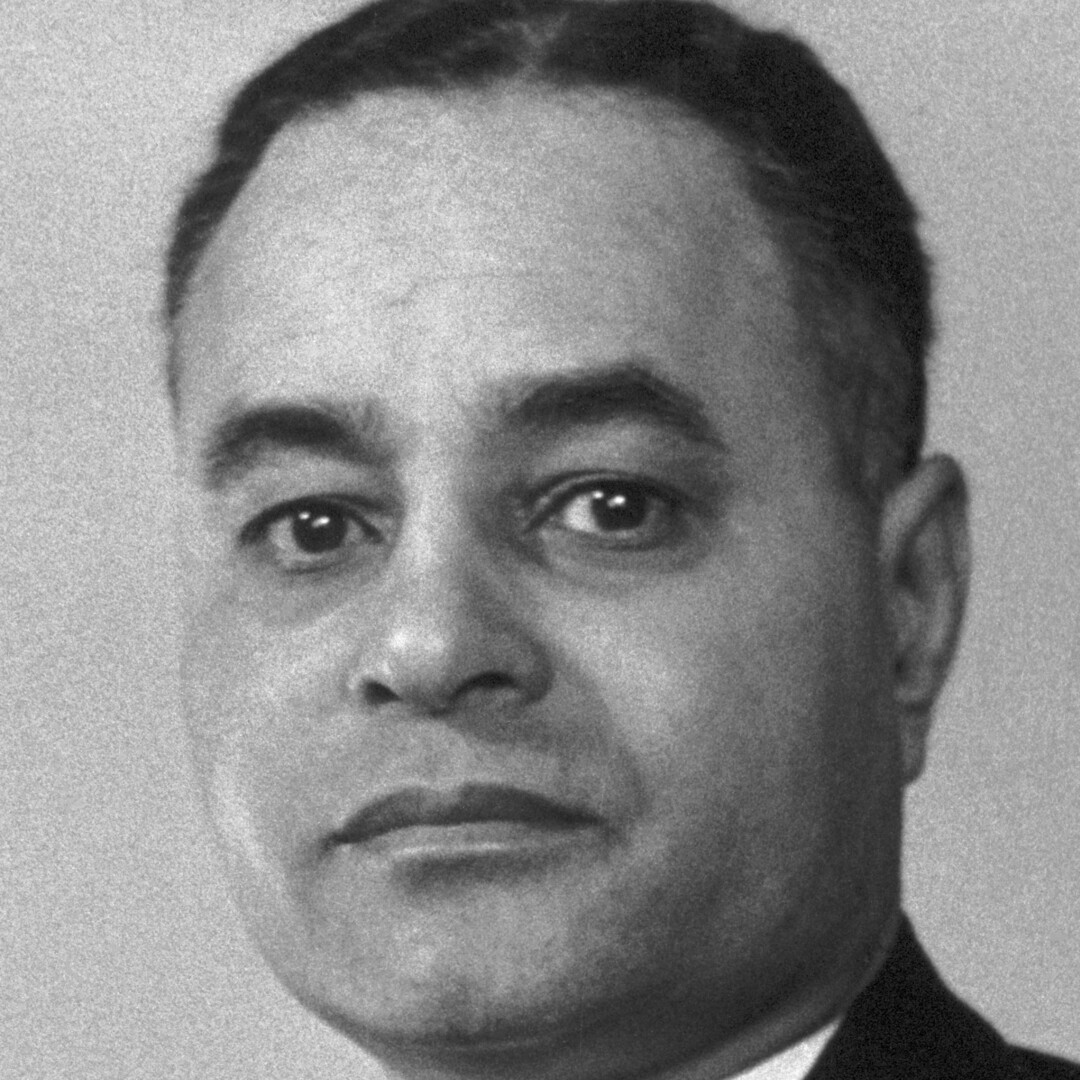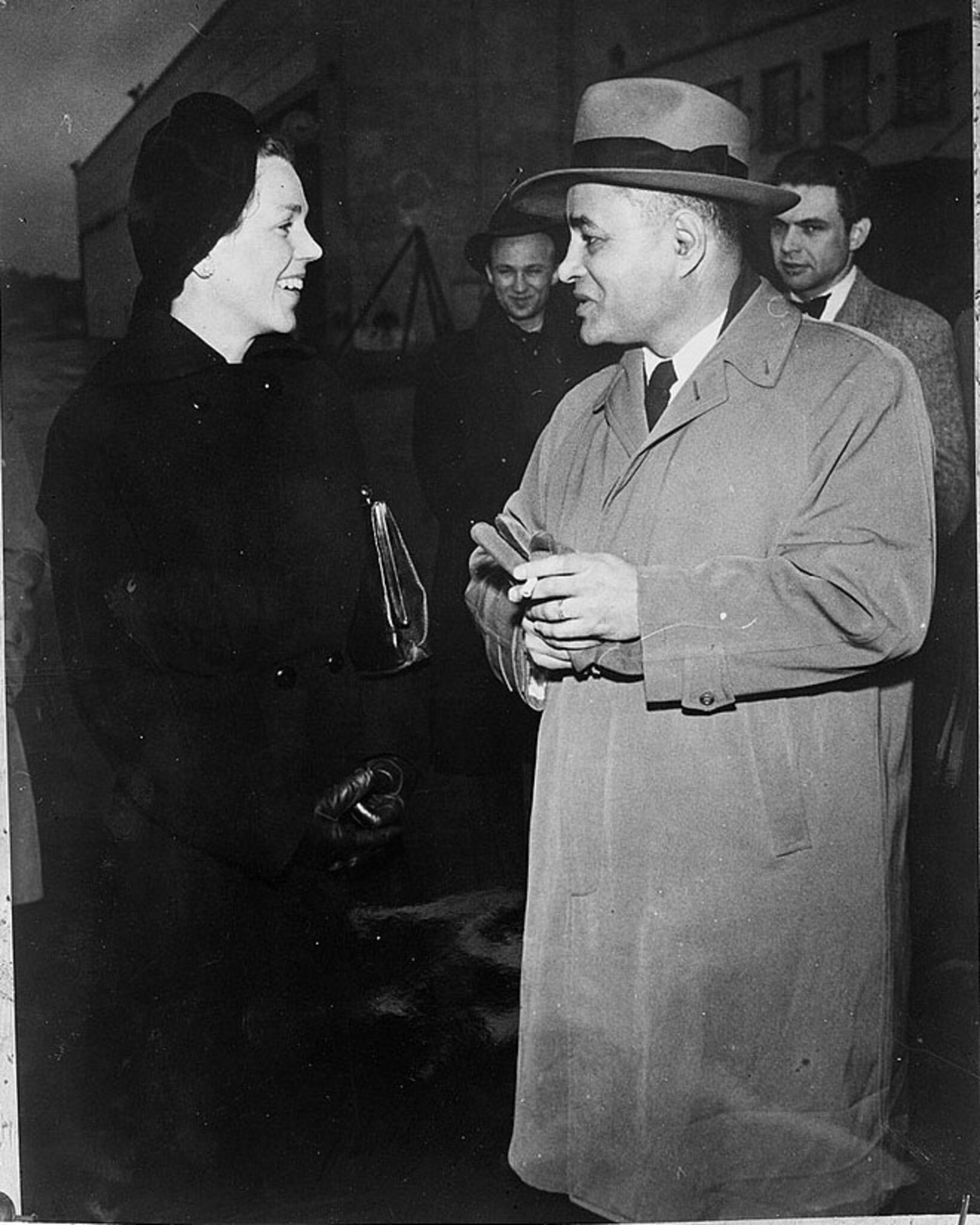Ralph Bunche
Speed read
Ralph Bunche was awarded the Nobel Peace Prize for negotiating a cease-fire between Israelis and Arabs during the war which followed the creation of the state of Israel in 1948.

Full name: Ralph Johnson Bunche
Born: 7 August 1904, Detroit, MI, USA
Died: 9 December 1971, New York, NY, USA
Date awarded: 22 September 1950
Peace mediator in the Middle East
On assignment from the UN, Ralph Bunche helped to develop a plan to divide Palestine between Jews and Arabs in 1947. All the Arab states in the Middle East were opposed to a Jewish state, and they attacked Israel when it was founded in 1948. The UN appointed Folke Bernadotte (Sweden) as peace mediator, with Ralph Bunche as his chief aide. Bernadotte and Bunche proposed a new partition plan intended to end the war, but the Jews vehemently opposed the plan. Bernadotte was subsequently assassinated by an extremist faction, and Bunche was asked to take over as chief mediator. Although he was unable to successfully negotiate a peace accord, Bunche achieved a ceasefire between Israel and the Arab states in 1949. By that time the Israelis had conquered more territory than was to have be their share according to the original UN plan.
"Ralph Bunche (…) You have a long day´s work ahead of you. May you succeed in bringing victory to the ideals of peace, the foundation upon which we must build the future of mankind."
Gunnar Jahn, Chairman of the Nobel Committee, Presentation Speech 11 December, 1950.
Bunche and the partitioning of Palestine
The Palestinian problem is “the sort of problem for which no really satisfactory solution is possible,” wrote a frustrated Ralph Bunche in 1947. He was sent to Palestine by the UN’s first secretary-general, Trygve Lie (Norway), to assist with the partitioning of Palestine into Jewish and Arab states. The Arabs were completely opposed to the partition plan, while many Jews wanted all of Palestine to be made theirs. The plan presented to the UN called for the establishment of two states, with a UN-governed Jerusalem. This would guarantee Jews, Christians and Muslims, alike, access to the city’s holy sites.
Ralph Bunche and Folke Bernadotte
UN envoys Folke Bernadotte and Ralph Bunche tried to end the war between the Israelis and Arabs in 1948. They proposed a new partition plan for Palestine that they hoped both parties would accept. An extremist Jewish faction objected to it so strongly, however, that it decided to assassinate both Bernadotte and Bunche. Bunche escaped death because he was delayed en route, missing the car scheduled to convey him and Bernadotte to a meeting. When the car stopped at a roadblock a young Jewish man fired his sub-machine gun into it, killing Folke Bernadotte.

"To the common man, the state of world affairs is baffling. All nations and peoples claim to be for peace. But never has peace been more continuously in jeopardy."
Ralph Bunche, Nobel Prize lecture, 11 December, 1950.
Learn more
Ralph Johnson Bunche was born in Detroit, Michigan. His father, Fred Bunche, was a barber in a shop having a clientele of whites only; his mother, Olive (Johnson) Bunche, was an amateur musician; his grandmother, «Nana» Johnson, who lived with the family, had been born into slavery ...
Article
Born in Detroit, Michigan, Bunche lost his parents at a young age. He was instead brought up by his grandmother in Los Angeles. She, who had been born into slavery, proved to be a great influence in his life, championing tolerance, discouraging bitterness and instilling in him the message that everyone has the right to be treated equally.
Ralph Bunche’s enduring fame arose from his service to the US government and, from 1946, the UN. His peace negotiations in this later role led to him receiving the 1950 Nobel Peace Prize.
Disclaimer: Every effort has been made by the publisher to credit organisations and individuals with regard to the supply of photographs. Please notify the publishers regarding corrections.
Nobel Prizes and laureates
Six prizes were awarded for achievements that have conferred the greatest benefit to humankind. The 12 laureates' work and discoveries range from proteins' structures and machine learning to fighting for a world free of nuclear weapons.
See them all presented here.
